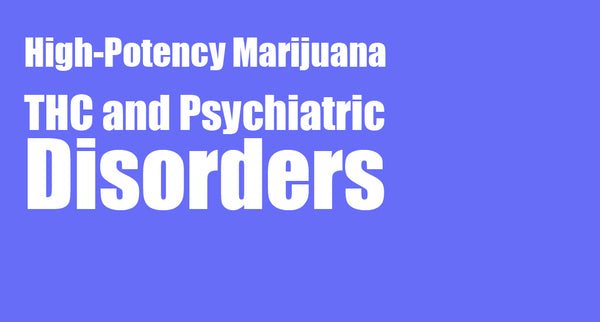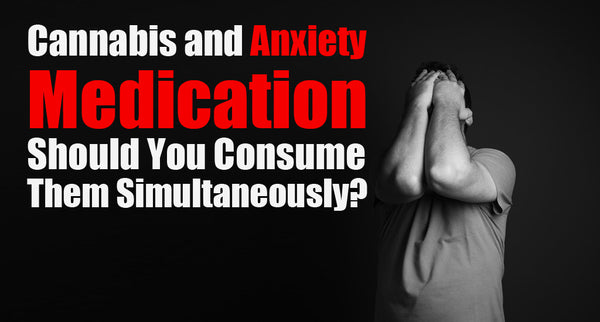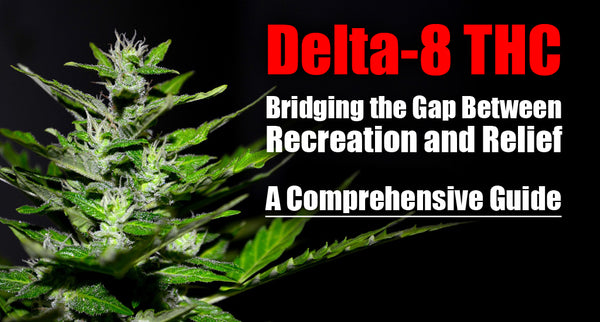
Is Marijuana Safer than Alcohol?
The ongoing debate comparing marijuana and alcohol has garnered significant attention, particularly in light of growing movements to legalize both medical and recreational marijuana. Various institutions have conducted extensive research, shedding light on earlier misconceptions about marijuana, such as the exaggerated claims of "reefer madness."
Despite over 60% of Americans supporting marijuana legalization and recognizing its medical benefits, it remains a highly controlled substance (Schedule I), in contrast to alcohol, which is legally accessible to individuals aged 21 and older.
This context has fueled discussions among cannabis enthusiasts about the relative safety of marijuana compared to alcohol. Perhaps the time is ripe to reassess this argument with a fresh perspective.
Related article: 7 Key Tips to Break the 'Irresponsible Stoner' Stereotype.
Alcohol vs. Cannabis
Before delving into the details, it's crucial to acknowledge the challenges in comparing alcohol and marijuana. These difficulties arise primarily because marijuana has not been fully legalized nationwide. Existing laws, both federal and state, impose restrictions on conducting comprehensive research and direct comparisons. Consequently, this legal landscape hampers our ability to access complete information.
NOW, THIS IS OUR APPLES TO APPLES COMPARISON.
1. Addiction & Withdrawal Symptoms
The comparison between the addictive properties of alcohol and marijuana reveals nuanced differences. Cannabis dependence is estimated at around 7%, which is less than half the rate of alcohol dependence, estimated at about 15%. However, addiction rates for both substances are lower than their dependence rates. Alcohol stimulates the release of both dopamine and endorphins, which can contribute to its addictive potential. Additionally, heavy alcohol use can lead to severe withdrawal symptoms and has harmful effects on various organs.
In contrast, long-term heavy cannabis use can impair the brain's dopamine system, affecting the ability to derive pleasure from normal activities, potentially leading to chronic use. A 2015 study found that while it's challenging to overdose on cannabis, alcohol falls into a high-risk category for overdose.
These findings suggest that alcohol may have a higher potential for addiction and misuse than cannabis, but individual factors like genetics, mental health, and environmental conditions significantly influence addiction risk for both substances.
2. Overdose & Death
For a comparison of alcohol and marijuana in terms of overdose risks, consider the following:
Alcohol, when consumed excessively, can lead to alcohol poisoning, a potentially fatal condition. The CDC reported that excessive alcohol use caused about 88,000 deaths annually in the U.S. from 2006 to 2010, significantly shortening the lifespans of those affected.
In contrast, marijuana overdoses leading to death are virtually unheard of. The National Cancer Institute notes that the body's receptors for marijuana differ from those for opioids, which explains the absence of fatal marijuana overdoses. Instances of marijuana overconsumption typically result in symptoms akin to a panic attack, uncomfortable but not life-threatening, often occurring in new users or in areas with recent legalization.
This comparison highlights the distinct differences in the safety profiles of alcohol and marijuana, particularly regarding their potential for overdose.
Sure, some people have experienced what could be called overconsumption of marijuana and ended up in emergency rooms. This often happened in states where marijuana was recently legalized. Usually, these cases involved new users who didn't know what to expect or accidentally took too much. In all these cases, the symptoms were similar to a panic attack, which isn't pleasant but also not life-threatening.
3. Crime Rates
In examining the societal impacts of alcohol and marijuana, research reveals a stark contrast. The National Institute on Alcohol Abuse and Alcoholism reports a strong link between alcohol and violent crimes, estimating alcohol's involvement in 25-30% of such incidents in the U.S. This high association underlines a significant societal concern regarding alcohol consumption and its potential to fuel aggressive behaviors.
Turning to marijuana, the landscape appears markedly different. Studies suggest that marijuana may actually reduce the likelihood of violence during intoxication. This assertion finds support in practical examples: Following the legalization of marijuana for adult use in Washington in 2012, a report by drugpolicy.org noted a decrease in the state's violent crime rate. Additionally, overall crime rates in Washington have maintained a historic low over the past 40 years, a trend mirrored nationally according to the National Incident-Based Reporting System.
Furthering this perspective, a study from the University of Texas at Dallas, exploring the impact of medical marijuana legalization between 1990 and 2006, found no increase in crime rates. In fact, the study linked medical marijuana laws to a decrease in homicides and assaults.
An interesting point of discussion is the role of THC, marijuana's main psychoactive element. According to "Marijuana Legalization - What Everyone Needs to Know," THC may decrease aggressive and violent behavior, particularly in chronic users. This finding, supported by a study from the National Academy of Sciences, suggests that THC might influence behavioral patterns differently than alcohol, potentially mitigating tendencies towards violence.
In conclusion, the evidence points to a divergent impact of marijuana compared to alcohol in the context of societal violence and crime, with marijuana showing potential in reducing aggression and violent incidents.
4. Driving
In-depth analysis of recent federal data and studies reveals an intriguing comparison between marijuana and alcohol in the context of driving impairment. A recent study indicates that while drivers who have recently consumed marijuana are marginally more likely to be involved in accidents compared to sober drivers, the risk is notably lower than that associated with drunk driving. However, the presence of marijuana in a driver's system does not definitively indicate impairment at the time of an accident, particularly given marijuana's longer-lasting presence in the body compared to alcohol.
Related article: Unscientific and Unfair: Why Kentucky's THC DUI Bill is Flawed
It's important to emphasize that driving under the influence of marijuana still poses risks, as it can impair critical driving abilities such as reaction time. In light of marijuana's legalization, research is intensifying, focusing on developing more accurate impairment tests. Such advancements are expected to improve road safety significantly in the future.
While the data suggests that driving under the influence of marijuana might be less risky than driving under the influence of alcohol, it's crucial to understand that both substances impair driving to some degree. Therefore, avoiding any form of impaired driving is essential to ensure road safety. Remember, safety should always be the top priority when on the road.
5. Learning and Memory
Remember those college days when you or your friends would go out to bars, have a great time drinking, but the next day, you'd be unsure if you did anything silly or embarrassing? That's what we call an alcohol blackout, and it can be a scary and dangerous experience.
Research from Harvard CAS (College Alcohol Study) shows that college students who frequently binge drink (three or more times in a 2-week period) are at high risk of negative alcohol-related consequences. They are twice as likely to have alcohol-induced memory losses compared to those who binge drink only once or twice in a 2-week period. So, drinking heavily multiple times within a short time can lead to those blackout moments that you might not remember later. It's essential to be cautious about how much alcohol you consume to avoid these risky situations.
This is really eye-opening. A new study surveyed 772 college students through email to understand their experiences with blackouts. Blackouts are times when people drink so much that they can't remember what happened later. The study found that about 50% of students who reported drinking alcohol had experienced a blackout at some point in their lives. In the year before the survey, 40% had one blackout, and 10% had a blackout just two weeks before the survey.
What's concerning is that many students said they found out later that they had done risky things during their blackout. Some of them vandalized property, drove a car, had sex, or engaged in other dangerous behaviors without even remembering it. This shows how serious blackouts can be and why it's essential to be responsible when it comes to alcohol to avoid such situations.
Let's discuss marijuana and its effects on the brain. According to a study in The New England Journal of Medicine, our brains continue to develop actively until around the age of 21. During these growing years, the brain is more sensitive to the long-term effects of THC, which is the main active ingredient in marijuana. So, it's important to be cautious about using marijuana during this critical period of brain development.
Let's look at how marijuana can affect the brain, especially during adolescence. Adults who used marijuana regularly during their teenage years might have "fewer fibers" in certain brain areas compared to those who didn't use it. This decrease in fibers could lead to a significant decline in IQ. However, research shows that the frequency and severity of marijuana use, especially when starting at a younger age, play a significant role in these effects.
The good news is that many of these cognitive effects can improve with longer-term abstinence from marijuana. Similar conclusions were reached by The American Medical Association in their study. So, it's crucial to be aware of the potential impact of marijuana on the developing brain, especially during adolescence.
Conclusion
Determining which is less dangerous, marijuana or alcohol, isn't straightforward due to insufficient conclusive evidence regarding the long-term safety of cannabis. While many studies highlight the potential dangers of irresponsible alcohol consumption, current research hasn't definitively proven marijuana to be unsafe. Thus, it's difficult to assert categorically whether cannabis is safe or not.
Given the known risks of alcohol abuse, including dependency and its physical effects, marijuana appears to be the safer option. This is a view shared by many who have experienced both substances. Typically, marijuana use might lead to overeating, but it generally leads to fewer harmful consequences than excessive alcohol use.
As marijuana legalization expands, more comprehensive studies will likely provide clearer insights into its effects. The key takeaway is the importance of responsible consumption, regardless of the substance.



